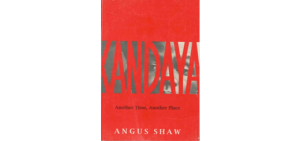Mayday Mayday Mayday
The furnaces at the New Zimbabwe Iron and Steel Company have long been extinguished
Engines of growth? NRZ is operating at 15 percent of its capacity
Mayday Mayday Mayday is the international aviation and maritime emergency call. It was adopted in the 1920s as a radio distress signal that cannot be mistaken in poor conditions of static or violent noise when the word is repeated three times. It originates from the French “m’aidez,” meaning “help me.”
May Day, May 1, International Workers’s Day, has come and gone in Zimbabwe’s distressed economy without joy. The main labour federation, the Zimbabwe Congress of Trade Unions, says the day could not be celebrated, rather it was a “commemoration” of what it was like to have had a healthy economy with workers’ rights respected, including the basic right to work and put food on the family table, and where acceptable employment opportunities were enjoyed.
Conservatively, the formal economy of business, commerce and industry has recorded 85 percent unemployment with new job losses every day. The official spin doctors say this is nonsense because most of the unemployed are now employed in the informal sector – street vending, selling cellphone airtime, carpentry, vegetables and second hand clothing at roadside stalls – there’s hardly a paving in central Harare not covered with piles of tomatoes – trinkets in flea markets, and then there’s ordinary hustling, trickery, crime and a host of other activities to make a dollar. So, say the spin doctors, 90 percent of Zimbabweans are actually engaged in gainful work, though their earnings, admittedly, are not going into banks to ease current cash shortages
In the week leading up to Workers’ Day, Mr Mugabe hosted a regional summit on industrialisation in Harare. Presidents and prime ministers went away with briefcases bulging with case studies on how to industrialise and ”beneficiate” or add value to southern Africa’s minerals and primary products the modern industrial way, generally requiring significant foreign direct investment which Zimbabwe, among the regional club of 15 SADC countries, has largely scared away with the exception of opaque deals with China.
The irony of Zimbabwe hosting this summit was not lost on participants, given the current xenophobia in South Africa, where as many as 3 million Zimbabweans live, mostly as economic fugitives. SA’s President Jacob Zuma, for one, had asked rhetorically why foreign nationals don’t stay in their own countries and go instead in search of the Holy Grail in his.
Industrial revolutions elsewhere thrived on rail transport. Zimbabwe’s railways are running at less than 15 percent of previous capacity. Signal wiring and equipment have been vandalized or stolen; drivers use cellphones, but where there is no coverage warnings are done manually – a flag is placed down the line from a train breakdown, sometimes tiny gunpowder charges are left on the rails so the wheels of an upcoming train pop them and the driver knows he must stop. Bulk freight transport by rail for coal, fuel, petroleum products and weighty goods of any nature is vital for a sustainable economy – and to save the roads from the degradation caused by heavy trucks. Coal is in short supply almost everywhere because the railway can’t shift it.
The home of the NRZ, the former hub of heavy industry, Bulawayo, is in massive decline. Once vibrant factories are used as storage warehouses for goods imported from South Africa, accounting for some 80 percent of food, consumables and other commodities available in supermarkets and shops.
Industry needs constant power and water, summiteers were reminded when a nationwide black out plunged them into darkness. Standby generators at the summit venue did not kick in and the headlights of a car were used to illuminate the lobby. At the Meikles Hotel, where some dignitaries stayed, the standby generator did kick in but the lifts were still stuck for six minutes.
 Bad hair day?
Bad hair day?
Botswana President Ian Khama (left), South African President Jacob Zuma (right) whose countries have borne the brunt of the Zimbabwean exodus, and President Mugabe, combing his hair before a press conference at the Harare summit (centre.)
The local Human Rights NGO Forum noted in its Workers’ Day statement that schools, colleges and universities are producing 300,000 student leavers each year who now have almost no chance of finding jobs. Most state enterprises – parastatals, they’re called here – have been run into the ground. “Incessant corruption in many state owned entities has virtually destroyed the resuscitation of parastatals such as Hwange Colliery (sitting atop the biggest deposits of quality coal in southern Africa; my brackets,) and Newzim Steel, formerly known as ZISCO, the group said.
A deal with the Indian steel giant Essar, one of the biggest steel enterprises in the world, to take over the moribund plant has fallen through after at least six years in negotiation. Newzim Steel’s employees have not been paid for over a year and grow their own food and beg and hustle nearby.
To blame, the Human Rights Forum goes on, are unrealistic black empowerment and ownership policies – indigenisation, it’s called here – interference in the banking sector, property rights violations connected to indigenisation, national budgeting that does not recapitalise industry and alleged misuse of government resources for political expedience.
















